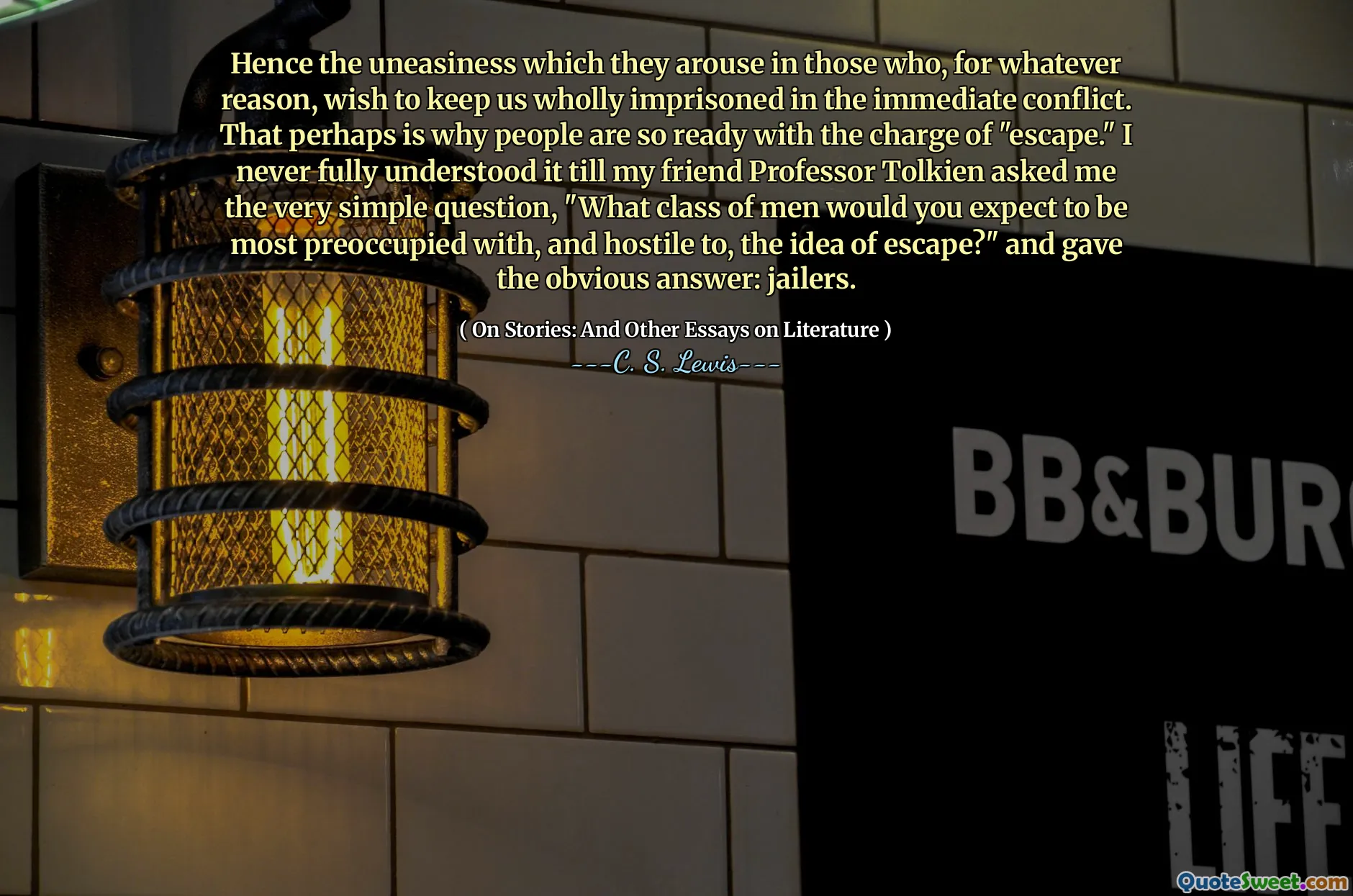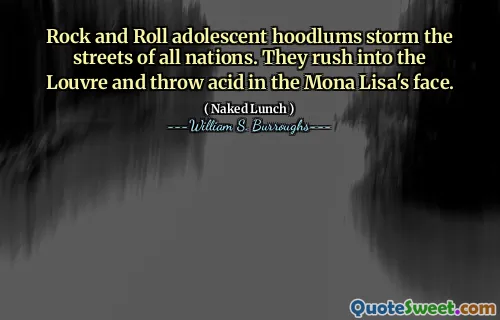
Hence the uneasiness which they arouse in those who, for whatever reason, wish to keep us wholly imprisoned in the immediate conflict. That perhaps is why people are so ready with the charge of "escape." I never fully understood it till my friend Professor Tolkien asked me the very simple question, "What class of men would you expect to be most preoccupied with, and hostile to, the idea of escape?" and gave the obvious answer: jailers.
This quote from C. S. Lewis illuminates a profound psychological and philosophical insight into human nature and societal dynamics. Lewis suggests that feelings of discomfort or unease — especially among those who benefit from maintaining the status quo — serve to suppress the notion of escape or liberation. The language points to a metaphor of imprisonment, perhaps symbolizing broader themes of mental, spiritual, or societal confinement. The intriguing part of the quote is the counterintuitive idea that those who have a vested interest in keeping others confined, like jailers, are psychologically or instinctively most averse to the idea of escape.
Lewis’s reflection invites us to consider how structures of power—whether political, social, or personal—instill a collective or individual resistance to change or liberation. The 'uneasiness' generated by those who resist escape functions as a protective mechanism, guarding their control and influence. Meanwhile, the idea that people who enforce or uphold this imprisonment might be most hostile to escape reveals an important truth: the oppressors are often fearful of losing their power and are therefore invested in discouraging thoughts of freedom.
This insight resonates as a compelling commentary on human psychology. It reveals that the true oppressors, consciously or unconsciously, work to suppress the very thoughts that might lead to liberation, thus maintaining their dominance. It also sharpens our understanding of how societal and institutional layers are psychologically reinforced by those with vested interests in the status quo. Recognizing this dynamic can inspire individuals to question when their own discomfort stems from internal fears or external controls. Ultimately, Lewis subtly encourages readers to explore the psychological barriers to freedom and the importance of courage in confronting them.
The quote underscores the importance of awareness and of questioning who benefits from our constraints, challenging us to discern genuine opposition from manufactured resistance, and to consider who might be the true opposition in stories of liberation.





